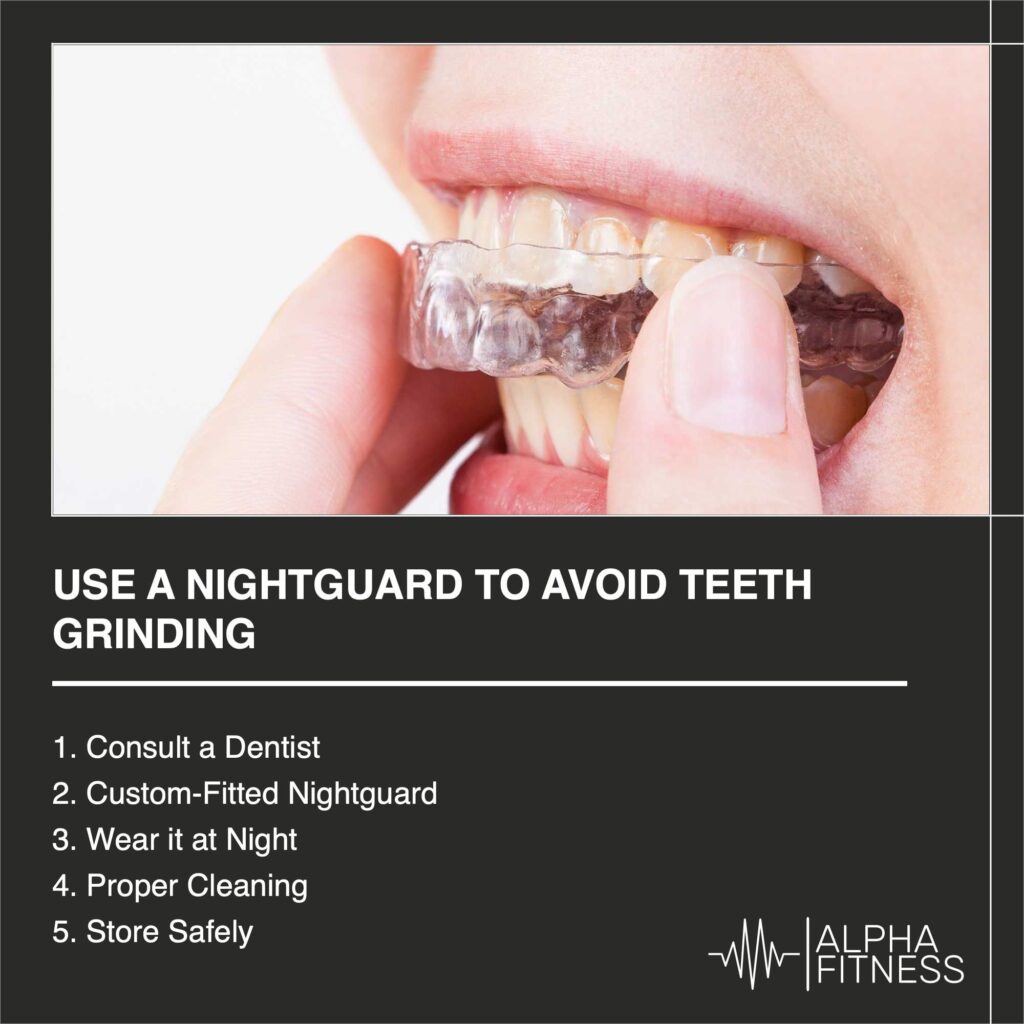
Using a nightguard is a common and effective way to prevent teeth grinding, also known as bruxism. Teeth grinding can lead to a variety of dental issues, including worn down teeth, jaw pain, headaches, and disrupted sleep. Here’s how you can use a nightguard to avoid teeth grinding:
Consult a Dentist:
Start by scheduling an appointment with your dentist. They can assess the severity of your bruxism and determine if a nightguard is necessary. They may also take impressions of your teeth to create a custom-fitted nightguard.
Custom-Fitted Nightguard:
If your dentist recommends a nightguard, they will either create a custom-fitted one or suggest an over-the-counter (OTC) option. Custom-fitted nightguards are typically more comfortable and effective as they are specifically designed to fit your mouth.
Wear it at Night:
If you have a custom-fitted nightguard, wear it every night as instructed by your dentist. If you’re using an OTC nightguard, follow the manufacturer’s recommendations. Make it a part of your bedtime routine.
Proper Cleaning:
Regularly clean your nightguard to prevent the buildup of bacteria and odors. Rinse it with cool water before and after use, and occasionally clean it with a mild soap or denture cleaner. Do not use hot water, as it can distort the nightguard’s shape.
Store Safely:
When not in use, keep your nightguard in its protective case. This will protect it from damage and contamination.
Address Stress and Anxiety:
Bruxism is often linked to stress and anxiety. Managing these underlying factors can help reduce teeth grinding. Consider relaxation techniques, stress management, or speaking to a therapist if necessary.
Regular Dental Checkups:
Maintain regular dental checkups to monitor the condition of your teeth and nightguard. Your dentist can make any necessary adjustments to your nightguard and track your progress.
Replace When Necessary:
Over time, nightguards can wear down or become less effective. If you notice signs of wear or discomfort, consult your dentist for a replacement or adjustment.
Below is a list of useful links:
- Get a healthy gum to regular use of mouthwash
- Potato chips, being starchy, can dry out your mouth
- Milk helps strengthen teeth
- Potato chips, being starchy, can dry out your mouth
- Charcoal Toothpaste: Is It a Safe Way to Whiten Your Teeth?
Using a nightguard can be an essential part of managing teeth grinding, but it’s important to combine it with other strategies, such as stress reduction, to address the root causes of bruxism. Consult your dentist for guidance and to ensure you are taking the right steps to protect your teeth and oral health.



